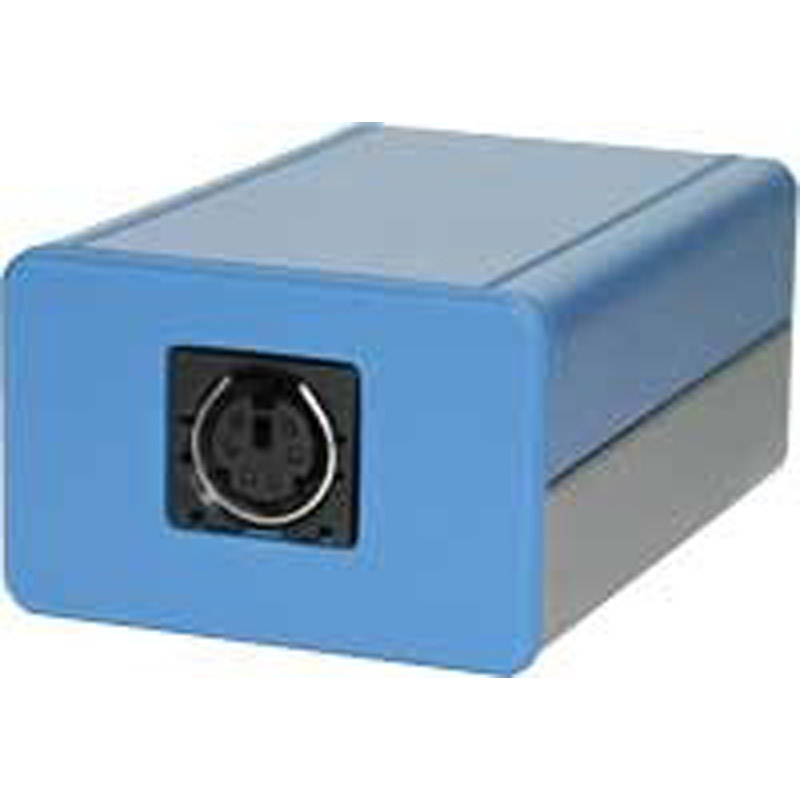
telos Connii MM 2.0
Part No.: MPTL-telos-Connii-MM-2.0
• Small, easy-to-use USB-based Multimaster
• Simple I2C Monitor, up to 400kHz
• I2C bitrates: 100 kbit/s and 400 kbit/s
• I2C buses operating at a range of 1.8 V – 5.5 V
產品介紹
telos Connii MM 2.0 – USB I2C Interface
telos Connii MM 2.0 is a small, compact, easy-to-use USB I2C transmitter and receiver. The I2C interface works as an I2C multi-master device. Thus, it operates even on buses with multiple masters.
Additionally, telos Connii MM 2.0 is an I2C Tracer monitoring traffic up to ~400 kHz.
It can optionally power the I2C bus with a supply voltage of 1.8 V, 3.3 V or ~5 V (50 mA max.). The power for this is drawn from the USB bus. This is helpful if you have a test appliance without power supply.
Connii MM 2.0
The USB I2C interface telos Connii MM 2.0 is connected to a PC via a standard USB port. Both I2C modes standard (100 kbit/s) and fast (400 kbit/s) can be selected as speed of operation.
The device has two connectors – a standard USB plugin and a PS/2 connector for your I2C bus.
In case you are looking for a more sophisticated I2C USB interface please check Tracii XL 2.0, the sole I2C interface supporting the I2C high speed mode.
Software
The product comes with the most advanced I2C software on the market – I2C Studio. Additionally you get the telos I2C Framework which helps you writing your own I2C related applications using .NET.
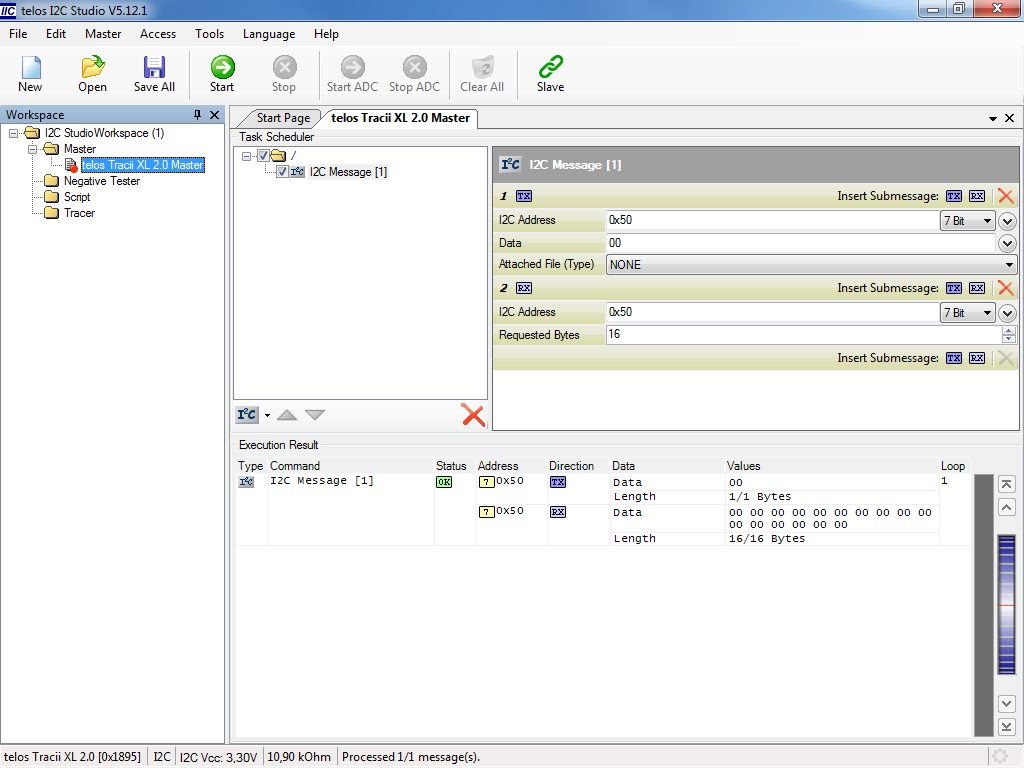
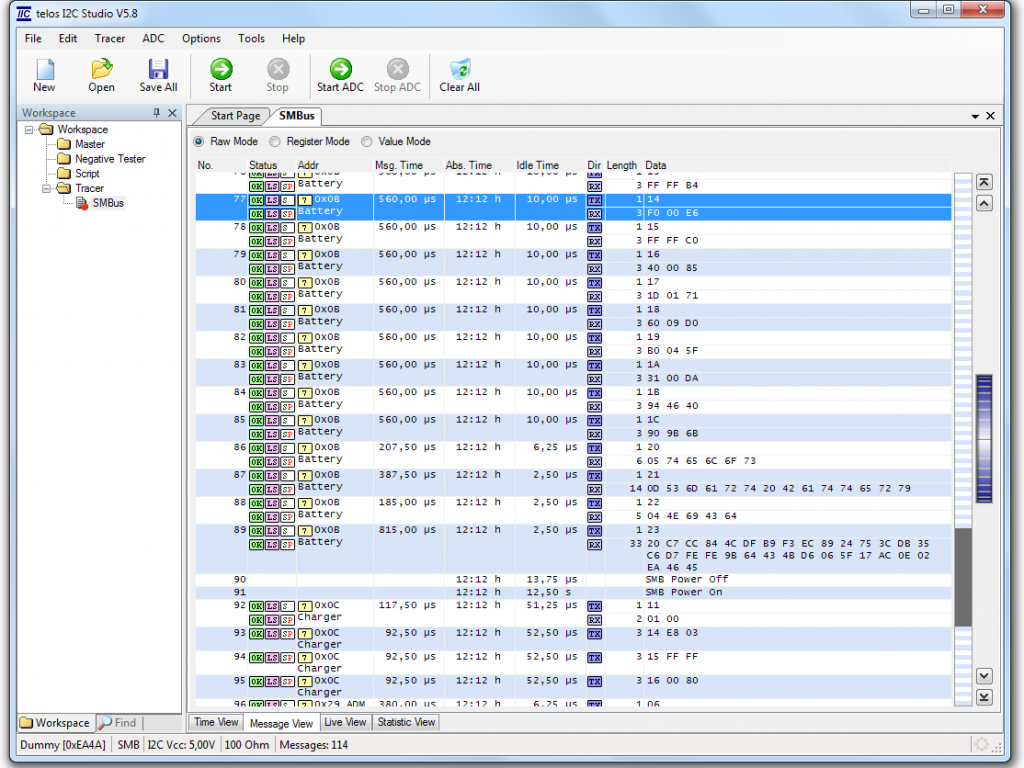

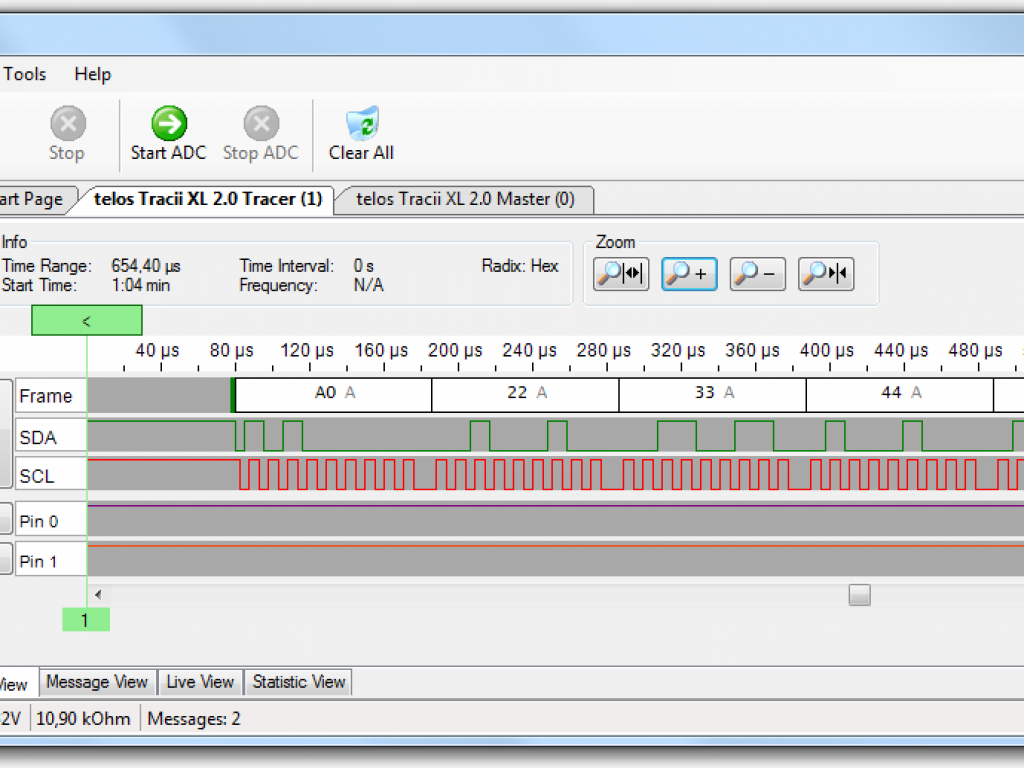
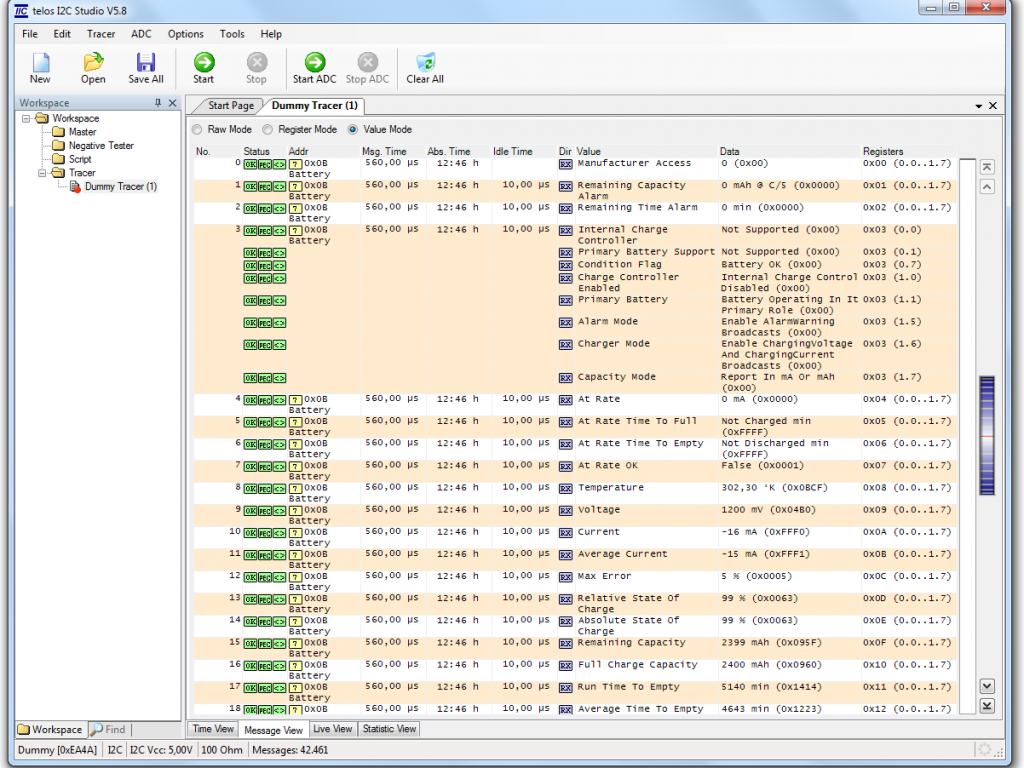
Labview VIs are included running different I2C modes.
All the software is for free, there are no hidden fees!
Features
- 100 kbit/s (Standard Mode) and ~ 400 kbit/s (Fast Mode). The actual rate slighly depends on the I2C bus termination
- I2C master receiver/transmitter transfers including repeated start condition handling, 7 and 10 bit addressing
- I2C via Internet
- Extensive software package including interfaces for C++, C#, .NET, Java, Labview, Delphi 8, Python and NXP’s (formerly Philips Semiconductors) URT/URD
- Superior Windows application I2C Studio
- Usage of several telos USB I2C interfaces including Tracii XL / Tracii XL 2.0 at the same computer via different USB ports, thus you can drive multiple I2C buses from a single PC!
- Future-proof product: Firmware completely downloaded via USB
- Compact size: The 68*41.5*27.5 mm sized plastic housing protects the device from damages
- USB 2.0 powered, no external power supply necessary.
- TCP/IP Network support (I2C via Internet)
More Features
- I2C Multimaster: Several I2C master may share the bus
- Simple I2C Monitor. Limited tracing up to 400 kHz (see Limitiations tab)
- Clock stretching detection: A slave may stretch the bus
- Optional supply voltage for the I2C bus: 1.8 V, 3.3 V, ~5 V (depends on USB supply voltage), 50 mA max.
- TWI bus support
Interfaces
- PC connection via USB, supporting both, USB 2.0 high-speed and USB 1.1 full-speed transfers
- I2C connection via Mini-DIN connector
- I2C buses operating at a range of 1.8 – 5.5 Volt can be attached
ESD
- ESD protected I2C, IEC compatibility according to EN 61000-4-2 (ESD): Air – 15 kV, Contact – 8 kV
Limitations
-
The I2C Monitor does only recognize regular I2C transfers, no I2C error conditions etc. The monitor may stretches SCL, i.e. the SCL line may be held low occasionally. This usually happens for rate higher than 100 kbit/s
That may lead to problems with master or slave devices that do not support SCL stretching (like some I2C single master implementations).
Tracii XL 2.0 offers a more sophisticated I2C Tracer, which includes time stamps for every byte and error recognition
Deliverables
- The actual device (68*41.5*27.5 mm plastic housing)
- Software package I2C Framework including all listed components.
- Application I2C Studio
I2C Framework plus I2C Studio needs to be downloaded
Related Products
- Full Mini-DIN (PS/2) cable To interface your I2C bus to a hardware with Mini-DIN interface.
- Mini DIN Test Probe To interface your lab equipment to our hardware.
- USB cable To interface to the USB port of your PC.
- Tracii XL 2.0 I2C High Speed Interface for USB
You may of course use standard cables already available at your lab. The PS/2 cable quality might have impacts on the signal quality on the I2C bus.